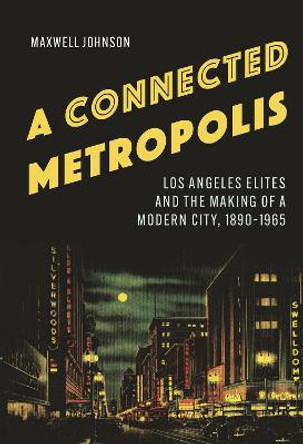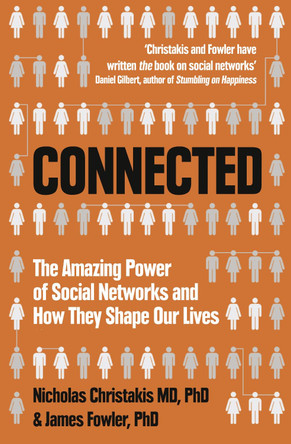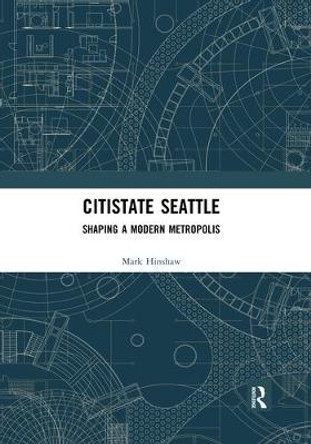Description
The Connected City explores how thinking about networks helps make sense of modern cities: what they are, how they work, and where they are headed. Cities and urban life can be examined as networks, and these urban networks can be examined at many different levels.
The book focuses on three levels of urban networks: micro, meso, and macro. These levels build upon one another, and require distinctive analytical approaches that make it possible to consider different types of questions. At one extreme, micro-urban networks focus on the networks that exist within cities, like the social relationships among neighbors that generate a sense of community and belonging. At the opposite extreme, macro-urban networks focus on networks between cities, like the web of nonstop airline flights that make face-to-face business meetings possible.
This book contains three major sections organized by the level of analysis and scale of network. Throughout these sections, when a new methodological concept is introduced, a separate 'method note' provides a brief and accessible introduction to the practical issues of using networks in research. What makes this book unique is that it synthesizes the insights and tools of the multiple scales of urban networks, and integrates the theory and method of network analysis.
About the Author
Zachary P. Neal is an Assistant Professor of Sociology and Global Urban Studies at Michigan State University, and serves as Associate Editor of Global Networks and on the Editorial Board of City and Community. His research on cities and networks has appeared in Urban Studies, Global Networks, City and Community, the Journal of Urban Affairs, and Geographical Analysis. He is also the co-editor of Common Ground? Readings and Reflections on Public Space.
Reviews
"Urbanists often talk about cities as 'agglomerations' and 'clusters,' but what makes them such powerful economic and social engines is their extraordinarily intricate and adaptable weave of connections. Zachary Neal's The Connected City shows how networks make cities more innovative and people more productive-and explains why cities are increasingly replacing large bureaucratic corporations as the key social and economic organizing units of our time."
--Richard Florida, Director, Martin Prosperity Institute, Rotman School of Management, University of Toronto and author of The Rise of the Creative Class, Revisited
In The Connected City Zachary Neal uses the language of network science to unravel the mechanisms that govern a city's daily evolution and patterns daily life. He offers a persuasive narrative that fundamentally alters the way we perceive urban life. - Albert-Laszlo Barabasi, Distinguished Professor and Director of Northeastern University's Center for Complex Network Research and author of Linked
The Connected City is the networked city. Zack Neal's masterful book takes away from old-fashioned views of cities to show how they thrive through their networks -- between residents, businesses and even between cities. The cities' networks pulse with vitality and life, and so does this book.
--Barry Wellman, S.D. Clark Professor of Sociology, University of Toronto
The strength of the book is in presenting a network analytic "take" on many of the key issues in urban studies, while at the same time providing a quite brilliant introduction to network analysis using these urban studies themes. It is quite well written and accessible to advanced undergraduates without being too elementary for more experienced students of these urban issues.
--Michael F. Timberlake, University of Utah
Confronted by the multitude of new books on cities, there are two very good reasons to read this one: first, it provides a thorough understanding of how networks work; second, it does a brilliant job of evaluating networks across scales, from community to global, while remaining focused on cities. I consider The Connected City to be a cutting edge addition to the urban literature.
--Peter Taylor Director of GaWC
Professor, School of Built and Natural Environment, Northumbria University
Emeritus Professor, Department of Geography, Loughborough University
An overarching effort to comprehensively link the multifarious network approaches to cities has been long overdue. Neal's The Connected City effectively rectifies this situation: based on a sophisticated review of very diverse literatures, this book provides readers both an elegant introduction to and a wide-ranging review of the urban literature drawing on the notion of 'networks'.
-Ben Derudder, Marie Curie Research Fellow, School of Geography and Environmental Science, Monash University and Professor of Human Geography, Department of Geography, Ghent University
"Urbanists often talk about cities as 'agglomerations' and 'clusters,' but what makes them such powerful economic and social engines is their extraordinarily intricate and adaptable weave of connections. Zachary Neal's The Connected City shows how networks make cities more innovative and people more productive-and explains why cities are increasingly replacing large bureaucratic corporations as the key social and economic organizing units of our time."
--Richard Florida, Director, Martin Prosperity Institute, Rotman School of Management, University of Toronto and author of The Rise of the Creative Class, Revisited
In The Connected City Zachary Neal uses the language of network science to unravel the mechanisms that govern a city's daily evolution and patterns daily life. He offers a persuasive narrative that fundamentally alters the way we perceive urban life. - Albert-Laszlo Barabasi, Distinguished Professor and Director of Northeastern University's Center for Complex Network Research and author of Linked
The Connected City is the networked city. Zack Neal's masterful book takes away from old-fashioned views of cities to show how they thrive through their networks -- between residents, businesses and even between cities. The cities' networks pulse with vitality and life, and so does this book.
--Barry Wellman, S.D. Clark Professor of Sociology, University of Toronto
The strength of the book is in presenting a network analytic "take" on many of the key issues in urban studies, while at the same time providing a quite brilliant introduction to network analysis using these urban studies themes. It is quite well written and accessible to advanced undergraduates without being too elementary for more experienced students of these urban issues.
--Michael F. Timberlake, University of Utah
Confronted by the multitude of new books on cities, there are two very good reasons to read this one: first, it provides a thorough understanding of how networks work; second, it does a brilliant job of evaluating networks across scales, from community to global, while remaining focused on cities. I consider The Connected City to be a cutting edge addition to the urban literature.
--Peter Taylor Director of GaWC
Professor, School of Built and Natural Environment, Northumbria University
Emeritus Professor, Department of Geography, Loughborough University
An overarching effort to comprehensively link the multifarious network approaches to cities has been long overdue. Neal's The Connected City effectively rectifies this situation: based on a sophisticated review of very diverse literatures, this book provides readers both an elegant introduction to and a wide-ranging review of the urban literature drawing on the notion of 'networks'.
-Ben Derudder, Marie Curie Research Fellow, School of Geography and Environmental Science, Monash University and Professor of Human Geography, Department of Geography, Ghent University
This book can best be seen as an undergraduate and graduate textbook for city network analysis, in which the author intuitively shows how networks within and between cities help us to better understand contemporary urban agglomerations. The increasing popularity of the network perspective in sociology, geography, and economics has provided Neal with widespread opportunities to conduct fruitful research on urban networks.
-- Martijn J. Burger, Journal of Regional Science, Vol. 54, No. 2, 2014
Book Information
ISBN 9780415881425
Author Zachary P. Neal
Format Paperback
Page Count 272
Imprint Routledge
Publisher Taylor & Francis Ltd
Weight(grams) 500g







